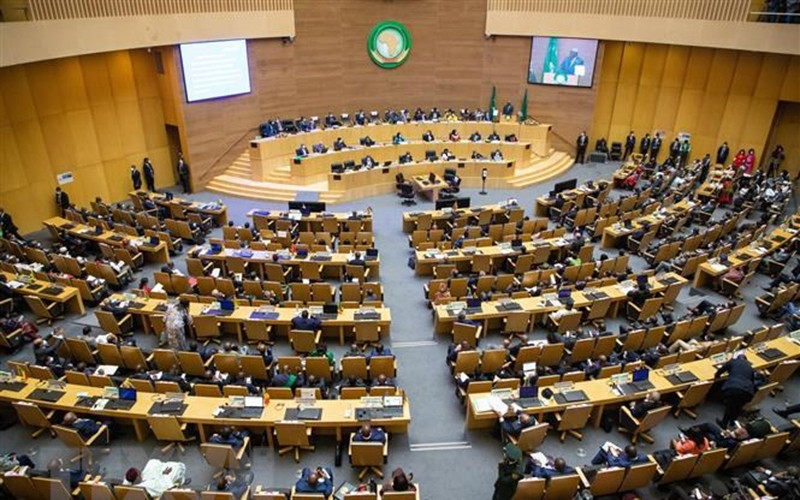The AU Summit took place in the context that Africa continues to face a series of major challenges, such as the COVID-19 pandemic, crises leading to political upheaval and conflicts, that destabilised the situation in several countries. AU Commission Chair Moussa Faki Mahamat, expressed concern about the security situation in Africa.
He noted that the security of the continent is facing challenges from terrorism and the dangerous rise in waves of unconstitutional government changes. The AU officials have condemned the recent wave of coups that have resulted in the suspension of many member states of the bloc.
As of mid-2021, four AU member states have had their membership suspended by the AU's Peace and Security Council, for unconstitutional changes of government. For the first time in the AU's history, in just 12 months, the four suspensions from the bloc, include Mali, Guinea, Sudan and Burkina Faso. AU Commission Chair Moussa Faki Mahamat condemned the disturbing increase in such coups.
In Mali, which is often seen as a “hotspot” in West Africa, has sunk into crisis after a decade of conflict and has yet to find a solution. Insecurity is growing, the humanitarian situation is worsening, and the country appears to be caught up in a never-ending cycle of instability. It is estimated that more than 1.8 million people in Mali will need food assistance in 2022, up sharply from 1.3 million in 2021. This is the worst food insecurity in this African country since 2014.
Meanwhile, Mali's security is tied to the stability of the region. France and its European allies have deployed forces in Mali, to support the country's troops fighting insurgencies and helping forces in the Sahel region, fight terrorism for many years. However, the junta's prolonged transition in Mali is making the situation in the country spiral out of control.
France said it will join with partner countries in the European Union (EU) to review the presence of these countries' troops in Mali. The Takuba task force was launched in March 2020, to fight terrorist groups in the Sahel region, after France withdrew Barkhane force in Mali. In addition to France as the leading country, the Takuba force also includes soldiers from the Netherlands, Estonia, Sweden, Belgium, Czech Republic, Norway, Portugal, Italy and Hungary.
In addition, instability in countries such as Sudan, Burkina Faso and Guinea, also put international forces in the region, before security challenge situations become more chaotic and difficult to control.
Political disagreements, conflicts, and poverty, are the main causes of protracted conflicts in Africa. African leaders said that the security situation on the continent, requires a new approach to the structure of peace and security, as well as the relationship with new destabilising factors.
Meanwhile, United Nations Secretary-General Antonio Guterres noted that inequality has been deeply ingrained in the global system and that Africa is bearing the brunt of the consequences. It is inequality that has exacerbated armed conflicts, political, economic, ethnic and social tensions, violence against women, terrorism and coups in Africa, he stressed.
The vicious cycle of poverty and conflict is clinging to Africa and when a comprehensive solution has yet to be found to solve the root causes of the problems, the continent continues to face security challenges, that are threatening the stability of the region.
















